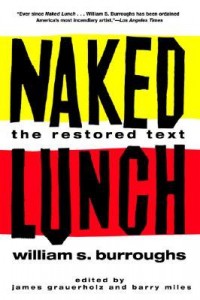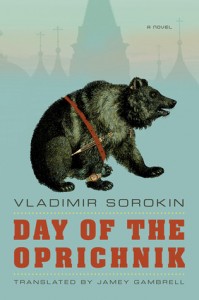 Title: The Love Song of Jonny Valentine (Goodreads)
Title: The Love Song of Jonny Valentine (Goodreads)
Author: Teddy Wayne
Published: Free Press, 2013
Pages: 304
Genres: Humour
My Copy: Library Book
Buy: Amazon, Book Depository (or visit your local Indie bookstore)
Eleven year old pop sensation Jonny Valentine knows that people love him. The singer’s voice, hairdo and image, carefully packaged together by his LA label and manager/mother are what they really love. But within this mass marketing machine, the real Jonny is hidden somewhere. This is the story of Jonny Valentine, a vulnerable boy perplexed but his budding sexuality, his celebrity heartthrob status, the tight control his mother has over him and his absent father.
This book has been on my radar for a while now and I’m not really sure how it got there, I didn’t know many people who had read it. In fact I only discovered two people in my book blogger RSS that had read this book (Jennifer from The Relentless Reader & Kristin from My Little Heart Melodies) when I added the novel to Goodreads as ‘Currently Reading’. Having said I knew that this was a satirical look at Justin Beiber and that was enough to convince me to read it. While this is in fact true, I didn’t expect what I got; not only was it a humorous look at celebrity heartthrobs, it also has some really interesting things to say about growing up in that position.
The Love Song of Jonny Valentine follows the pop star on a tour for his second album, everything part of his professional career has been carefully planned out by his label and his manager, Jane, who is also his mother. The label and his mother don’t often see eye to eye, most of the time you get the impression that Jane is looking out for her son but then you also think she is too controlling. This isn’t necessarily a bad thing; I wouldn’t want an eleven year old celebrity looking at what has been said about them on the internet. The label works to slowly push Jonny’s mother out and replace her with someone more experience (I say that loosely) in the hopes to have more control of his image and career. Sex sells, the label knows this but Jane does not want to resort to that method until Jonny has at least gone through puberty.
Then you have Jonny’s life outside of performing, his tutoring, vocal lessons, exercise and meal plans and video games. Constantly in a bus with other members of his crew (manager, vocal coach, tutor, bodyguard, and road crew) you get a sense of a lonely boy without any real friends his own age. His new support act are closer to his age and when he hangs out with them he soon finds himself getting into trouble. His hormones are starting to take over his body and this also leads him astray; since his mother is too busy being his manager he often spends his nights and afternoons alone playing video games and thinking about sex.
There is also the absent father, one night while sneaking some internet time, Jonny Valentine finds his father searching from him on a few of his fan forums. Feeling reluctant Jonny sets up a Gmail account and emails him asking for proof that he is really is his father. Without going into too much about what happens in the novel there are so many incredibly funny moments within this book. The fact that a newly setup Gmail account gets so much spam made me chuckle, since Google claim to have strong protection against spammers. This is one of many things that just tickled my fancy in the novel, it kind of reminds me of Billy Lynn’s Long Halftime Walk with the comedic look at celebrity life (again I say that loosely) and in the style.
One of the most entertaining books I’ve read so far this year, I’m surprised that this novel hasn’t received more coverage. The cover alone makes this book worth buying, look at it; it’s so shiny and distracting. Not only is this novel jammed with humour and entertainment, its thought provoking and will get you thinking about celebrities in ways you’ve never expected. I hope more people go out and read The Love Song of Jonny Valentine because it’s well worth it, I really need to find some more books like this, if you have any suggestions.

 Title: Tampa (
Title: Tampa ( Title: Naked Lunch (
Title: Naked Lunch ( Title: Decline and Fall (
Title: Decline and Fall ( Title: Main Street (
Title: Main Street (
 Title: Lolita (
Title: Lolita ( Title: Day of the Oprichnik (
Title: Day of the Oprichnik ( Title: House of Leaves (
Title: House of Leaves ( Title: Billy Lynn's Long Halftime Walk (
Title: Billy Lynn's Long Halftime Walk (